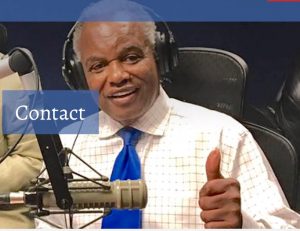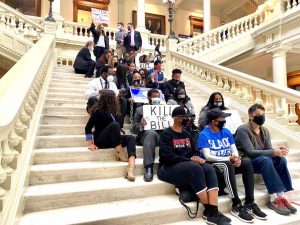 Budget hearings will begin Tuesday under the Gold Dome (and via Zoom, amid Covid-19 precautions). At his State of the State address Thursday before a joint session of the Georgia Legislature, Georgia Gov. Brian Kemp soothed agencies and Georgians with a pledge that his budget would contain no cuts, no furloughs and no new taxes.
Budget hearings will begin Tuesday under the Gold Dome (and via Zoom, amid Covid-19 precautions). At his State of the State address Thursday before a joint session of the Georgia Legislature, Georgia Gov. Brian Kemp soothed agencies and Georgians with a pledge that his budget would contain no cuts, no furloughs and no new taxes.
The applause was thundering. Even so, as he discussed budget amendments for the fiscal year ending in June, the governor made some perplexing promises. Bear in mind: The state still could founder in deep waters despite Kemp’s valiant — and heretofore successful — efforts to keep it afloat amid the Covid-19 crisis.
The governor hit many high notes. He gave kudos to the state’s heroes, frontline workers and businesses. He shared pro-growth initiatives for rural Georgia, endorsing “targeted, innovative public-private solutions,” including a $40 million rural innovation fund for small businesses. He proposed $20 million for this fiscal year, then $10 million annually, for rural broadband grants.
He announced his budget for next fiscal year includes more than $400 million toward healthcare initiatives, to implement the promising federal waivers that will increase access to affordable healthcare as well as fund PeachCare for children.
The biggest chunk of Kemp’s budget promise went to K-12 education. First, he praised the state for allocating $30 million to improve online access for K-12 students and “slashing requirements on testing.” On testing, of course, forging the uncharted waters of online education without a map and captain’s log is hardly the way to reach one’s destination. Minimal consequences often lead to minimal effort, and anecdotal evidence suggests there are both students and instructors exerting minimal effort while being counted “present.”
Many students have left their district school as Georgia parents gave up trying to schedule around fickle districts while trying to earn a paycheck. Kemp missed an opportunity to incentivize schools to return kids to the classroom when he said his budget would both fund additional enrollment and hold school districts harmless for students who leave their public schools. Imagine being forced to pay a grocery store for groceries it does not stock.
Last year, before the pandemic, Kemp sought a $2,000 pay raise for teachers, following a 2019 raise of $3,000, to keep his 2018 campaign promise of a $5,000 increase. The pandemic ruined that plan. Thursday, he proposed a one-time, $1,000 payment to every public school teacher and employee. Many have spent the school year out of the classroom and resisting a return to in-person instruction.
For the amended budget, he proposed “restoring funds” to schools: $647 million for this fiscal year. Another $573 million would go to continue those efforts in the next fiscal year, so “Schools will be able to prioritize our students’ safety.”
It’s worth pointing out, as Foundation president Kyle Wingfield noted in a column last year, that before the pandemic, the state’s 180 school districts collectively had more in their rainy day fund than the entire state of Georgia did. In fact, their reserves were “almost 3.5 times the amount by which the state cut K-12 spending,” Wingfield wrote.
For special-need students, most of whom struggle greatly in a virtual setting, Kemp promised to work to set aside $10 million in Governor’s Emergency Relief Funds to reimburse parents for additional education costs.
“We will make every resource available to give each and every student the opportunity to succeed,” Kemp told legislators.
There was one resource not mentioned in Kemp’s address: expanding education options and alternatives for Georgia families. For working parents at the mercy of school districts’ changing rules while they struggle to educate, engage and entertain their children, an opportunity to take some of their tax dollars elsewhere to be put to better use could be a godsend.
A few parents are able to move their children to private schools or to districts that have remained open for in-person learning. Those who are struggling, left behind without alternatives, deserve a fighting chance. There is no better time than now to ensure every Georgia child has a chance to succeed.
[Benita M. Dodd is Vice President of the Georgia Public Policy Foundation. Established in 1991, the Foundation is a trusted, independent resource for voters and elected officials. The Foundation provides actionable solutions to real-life problems by bringing people together.]











Leave a Comment
You must be logged in to post a comment.